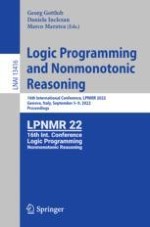2022 | OriginalPaper | Buchkapitel
Learning to Rank the Distinctiveness of Behaviour in Serial Offending
verfasst von : Mark Law, Theophile Sautory, Ludovico Mitchener, Kari Davies, Matthew Tonkin, Jessica Woodhams, Dalal Alrajeh
Erschienen in: Logic Programming and Nonmonotonic Reasoning
Aktivieren Sie unsere intelligente Suche, um passende Fachinhalte oder Patente zu finden.
Wählen Sie Textabschnitte aus um mit Künstlicher Intelligenz passenden Patente zu finden. powered by
Markieren Sie Textabschnitte, um KI-gestützt weitere passende Inhalte zu finden. powered by
